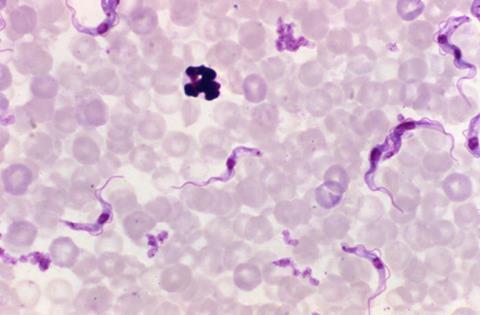Cyanotriazole compounds are fast-acting topoisomerase II poisons that can selectively and rapidly kill trypanosome parasites that cause Chagas disease and African sleeping sickness, according to a new study.

Millions who live in Latin America and sub-Saharan Africa are at risk for trypanosomatid infections – pathogenic protozoan parasites that cause Chagas disease and human African trypanosomiasis (HAT), which are potentially fatal if not treated.
Although treatments for HAT have improved in recent years, Chagas therapies remain limited and rely on lengthy regimens of toxic drugs. More effective, safer, and shorter-duration therapeutics for Chagas disease are critically needed.
Library of molecules
Here, Srinivasa Rao and colleagues performed an automated whole-cell high-throughput screening of the Novartis compound library – a database of drug-like molecules – to discover potential growth inhibitors for trypanosomatids.
Through this analysis, Rao et al. identified a class of cyanotriazoles (CTs), which exhibited potent trypanocidal activity and led to rapid clearance of parasites both in vitro and in mouse models of Chagas and HAT.
Using cryo-electron microscopy, the authors discovered that CTs selectively poison the parasite’s topoisomerase II – an essential enzyme in DNA replication – causing irreversible and lethal DNA damage.
“Given their therapeutic efficacy, we are undertaking advanced preclinical profiling of further optimized CT analogs to identify clinical candidates with a suitable safety profile,” write Rao et al in the journal Science.







No comments yet